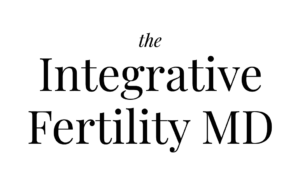For many, daily coffee or tea is a way of life. Perhaps it’s part of your morning ritual, a mid-day pick me up, or a way to finish a meal. Breaking the caffeine habit can be challenging, especially when met with unwelcome symptoms like headaches, dizziness, nausea, fatigue, brain fog, and negative mood. And it’s no wonder caffeine has such an effect on us: it’s classified as a drug because it stimulates the central nervous system, typically causing increased alertness, a temporary energy boost, and elevated mood.
Both coffee and tea, especially green tea, have been touted to some degree for health benefits. Both contain antioxidants and can prevent free-radical damage and reduce the risk of some diseases [R].
Despite some benefits, couples trying to conceive are cautioned to watch their caffeine intake due to its effects on the fertility of both men and women.
Caffeine and Women’s Fertility
Evidence appears to be somewhat unclear in the impact of caffeine and fertility, as research sometimes yields different conclusions. Ovarian age is related to four factors, including egg reserve (antral follicle count), follicle-stimulating hormone (FSH) levels, inhibin B (a protein produced by eggs that responds to FSH), and estradiol (a female sex hormone produced by developing eggs). A study completed found that caffeine intake did not appear to affect these factors. [R].
However, more recent research completed in Japan appeared to indicate drinking coffee inversely correlates with AMH levels [R]. AMH is a hormone that helps doctors estimate the number of follicles in the ovaries and, therefore, a woman’s egg count. The conclusion indicated it is necessary to educate women about the impact their lifestyle has on their fertility.
Studies have shown caffeine can reach follicular fluid (the fluid surrounding the egg) and cross the placenta [R]. Coffee consumption in females wasn’t associated with pregnancy rate, but high coffee consumption may be associated with miscarriage [R]. Caffeine intake is associated with early miscarriage in some large studies [R, R], but not in another [R].
Estradiol is a female sex hormone produced by developing eggs. The enzyme CYP1A2 is important in the metabolism of both estradiol and caffeine [R]. Multiple studies indicate that increased coffee consumption seems to correlate to less free estradiol and increased sex hormone-binding globulin [R, R, R]. Caffeine intake increases some urine estrogen metabolites [R]. However, some studies show no effects on estradiol level [R, R].
Caffeine and Men’s Fertility
Women aren’t the only ones impacted by caffeine consumption. It appears overall caffeine negatively affects sperm DNA and sperm count. The integrity of sperm DNA is essential to fertilization and embryonic development. The number of sperm a male produces is an indicator of overall health, and while it only takes one sperm to fertilize an egg, more healthy sperm can increase the chances of fertilization.
One study showed that high doses of caffeine (308 mg) is associated with sperm DNA damage [R]. However, another study showed that it reduced sperm DNA fragmentation [R]. Also, some, but not all, studies show that male coffee drinking is linked to increased time to pregnancy [R]. In young Danish men, high cola and caffeine concentration was associated with reduced sperm concentration and total sperm count [R].
Conclusion
The evidence is somewhat mixed for caffeine and fertility in both genders. It’s possible that caffeine alone isn’t the problem but that it exacerbates other pre-existing conditions, lifestyle factors (sleep/stress), or susceptibility among people. Also, genetic variants, such as CYP1A2, may influence caffeine response [R].
It does appear high doses of caffeine activate the HPA axis [R], a hormonal response system activated in the stress response. It may be safe to consume caffeine (coffee, tea, dark chocolates) from organic sources and in limited amounts. Royal College of Obstetricians and Gynecologists (ROCG) recommends limiting caffeine intake to <200 mg/d or two mugs of instant coffee [R].
Accustom yourself to drinking your coffee or tea black without added milk, soy milk, or sweeteners. If you are a coffee drinker, light roasts appear to have slightly more health benefits as they are not as burned as dark roasts, and therefore they don’t contain the tars. Decaf coffee has had almost all of its caffeine content removed, although not all. It might be an alternative to caffeine, allowing you to participate in the rituals of coffee time without jeopardizing your fertility. When selecting a decaf, look for one that is a Swiss water processed coffee. The process of decaffeinating most commercial coffees is done by way of chemical extraction with methyl chloride – something you’ll want to avoid.
Unsweetened organic green tea is another safe alternative for your small amount of caffeine consumption. I recommend avoiding colas and similar beverages. Organic dark chocolate with at least 60% cacao and few additives such as sugars and cream can provide approximately 12mg of caffeine per serving.
For more information on how your nutrition and other lifestyle factors can impact your fertility, you can search my resources page or read additional articles on my blog. I also see patients in my offices in Los Angeles, Orange, and Riverside Counties, where I offer comprehensive integrative fertility treatments. You can contact us for an appointment here.



